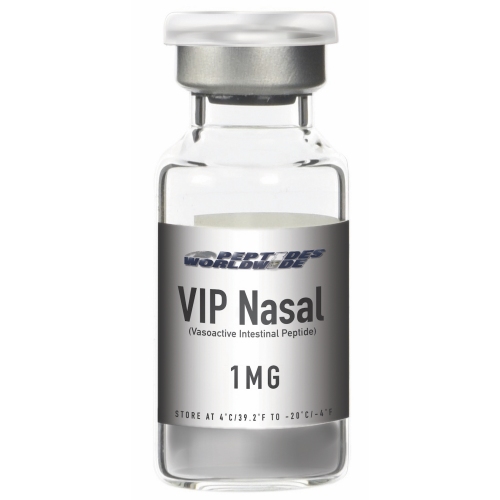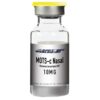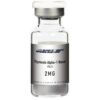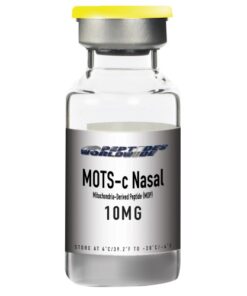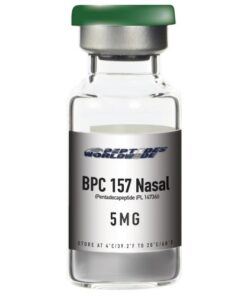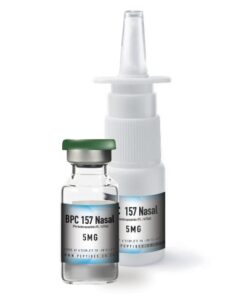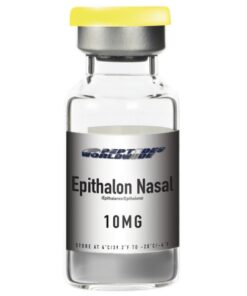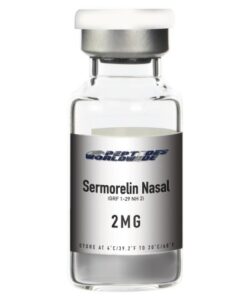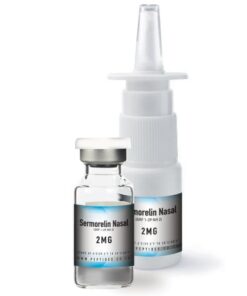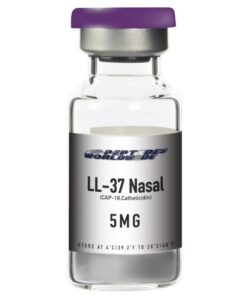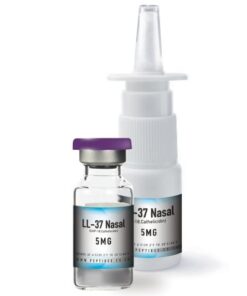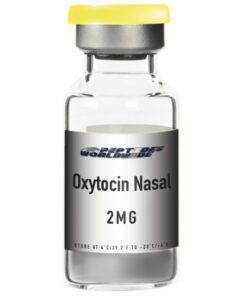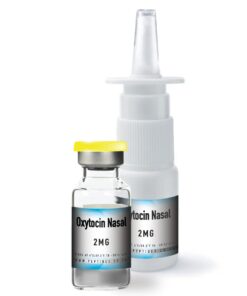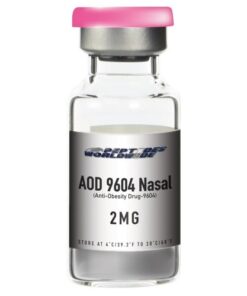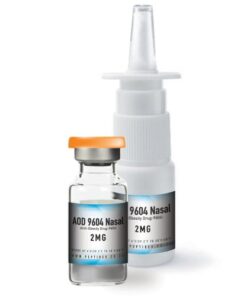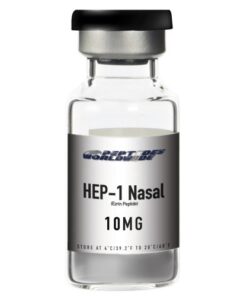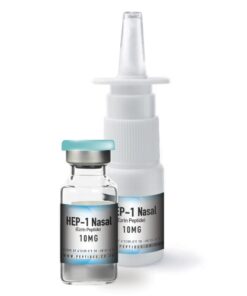VIP Nasal Spray – vial only – (Vasoactive intestinal peptide – Aviptadil) – 10MG per vial
$82.00
Clinical Test Expectation VIP Nasal Spray – Human Subjects : Proven Covid-19 blocker. Covid19 critical recovery. Gut repair. Increases glycogenolysis. Contractility in the heart. Lowers arterial blood pressure. Relaxes the smooth muscle of trachea, stomach and gallbladder. Regulates prolactin secretion. Full balancing of circadian rhythm. Can assist with osteoarthritis
Strength – 1MG per vial
Introduction
( VIP Nasal Spray ) Vasoactive intestinal peptide, also known as vasoactive intestinal polypeptide or VIP, is a peptide hormone that is vasoactive in the intestine. VIP is a peptide of 28 amino acidresidues that belongs to a glucagon/secretin superfamily, the ligand of class II G protein–coupled receptors. VIP is produced in many tissues of vertebrates including the gut, pancreas, and suprachiasmatic nuclei of the hypothalamus in the brain. VIP stimulates contractility in the heart, causes vasodilation, increases glycogenolysis, lowers arterial blood pressure and relaxes the smooth muscle of trachea, stomach and gallbladder. In humans, the vasoactive intestinal peptide is encoded by the VIP gene.
The vasoactive intestinal peptide (VIP) also known as the vasoactive intestinal polypeptide is a neuropeptide that belongs to a glucagon/secretin superfamily, the ligand of class II G protein-coupled receptors. It was initially reported to be expressed in lung and small intestine tissue; however, currently it is also described in neurons of central nervous system (CNS). Beside the neuronal source, VIP is also expressed and released from endocrine organs (such as heart, thyroid, kidney and gastrointestinal tracts) and immune organs (such as spleen, thymus, bone marrow and lymph nodes). VIP plays essential roles in a broad spectrum of biological functions. It stimulates contractility in the heart, causes vasodilation, promotes neuroendocrine-immune communication, increases glycogenolysis and lowers arterial blood pressure. VIP displays potent anti-inflammatory and immune-modulatory activity and modulation of VIP level has considered being a potential candidate for treatment of inflammatory and autoimmune diseases including acute pancreatitis, septic shock, inflammatory bowel disease, lipopolysaccharide (LPS)-induced acute inflammation and arthritis.
Osteoarthritis (OA) is a chronic and degenerative disease that results from the breakdown of articular cartilage components (particularly type II collagen and cartilage specific proteoglycans) and extensive remodeling of subchondral bone leading to synovitis as well as osteophyte formation. OA is the most common form of arthritis with disease of near the ends of the fingers, lower back, knees and hips which may affect weight bearing, mobility and normal daily activities. It is one of the most common causes of disability and most common in both sexes as people become older. Among adults in the age of over 60 years, the prevalence of OA is approximately 10 % in men and 13 % in women. The exact cause of OA is unclear. The etiology of OA is complex and multi-factorial including age, sex, and body weight, genetic, biological and biomechanical components. OA is believed to be caused by previous joint injury, abnormal limb development or mechanical stress on the joint. The most common clinical symptoms of OA are joint pain, swelling, decreased range of motion and stiffness. The joint pain is mainly due to the inflammation effects and the sensitization of neurobiological processes and further stimulation cascade of inflammation responses. During inflammation, mechanical stimuli sensitize joint nerves the actions of certain neuropeptides, eicosanoids, proteinase-activated receptors and ion channel ligands. Usually the inflammatory neuropeptides substance P, calcitonin gene-related peptide, as well as VIP, have all been reported to be immunolocalized in joint tissues and their levels are increased in arthritis.
Treatment of OA includes exercise, lifestyle modification and pain medications. The treatment of OA is still restricted to analgesics which have some undesirable and hazardous side effects. If the conventional management is ineffective and pain interferes with normal life, joint replacement surgery may be recommended. Evidence supports that joint replacement is both clinically effective and cost-effective; however, the functional and clinical outcomes can be poor. Therefore, alternative therapeutics is urgently needed that could improve the survival rate and quality of life of OA patients. A better understanding of the pathological mechanisms by which it promotes initiation and maintenance of joint pain in OA may help to identify the more effective targets to counteract the debilitating symptoms of OA.
Evidence suggests that VIP is shown to prevent chronic cartilage damage and joint remodeling. It shows the therapeutic function in rheumatoid arthritis (RA); however, the protective function of VIP in the progression of OA is not fully explained. In this review, we have focused on the association of VIP in the development and progression of OA and the potential effects of VIP as a therapeutic agent for the treatment of OA.
Vasoactive intestinal peptide (VIP) is one of the most abundant molecules found in the respiratory tract. Due to its anti-inflammatory and bronchodilatatory properties, it has been proposed as a novel treatment for chronic obstructive pulmonary disease (COPD).
Respiratory failure is a lethal complication of COVID-19 that has remained resistant to drug therapy. Vasoactive intestinal peptide (VIP) is shown in nonclinical studies to upregulate surfactant production, inhibit cytokine synthesis, prevent cytopathy, and block replication of the severe acute respiratory syndrome coronavirus 2 virus in pulmonary cells. The study aims to determine whether Aviptadil (synthetic VIP) can improve survival and recovery in patients with COVID-19 respiratory failure compared with placebo and demonstrate biological effects in such patients.
Dosing Details
Inject 1 ml water into the vial of VIP Nasal Spray from the vial of water. 1 ml is a full syringe. Draw out all the contents of the vial once mixed and clear in colour and inject into the nasal bottle. Then inject the balance of all the water in the 2 water vials 5ml each / 1 vial 10ml into the nasal bottle. So in total there will be 10ml water in the nasal bottle and the contents of the vial. Spray 2 times per nostril at night before bed.

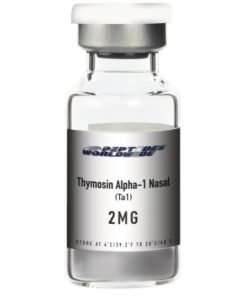 Thymosin Alpha-1 Nasal Spray - vial only -(Tα1) - 2MG per vial
Thymosin Alpha-1 Nasal Spray - vial only -(Tα1) - 2MG per vial 